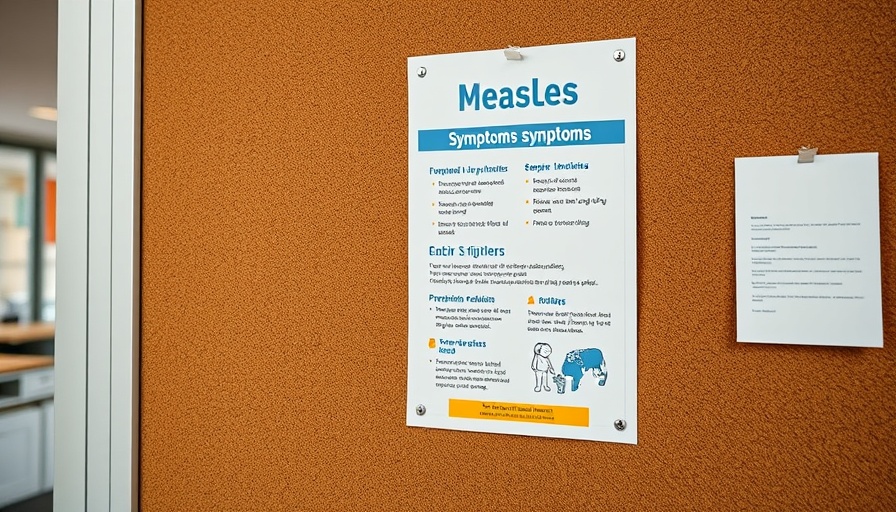
The Alarming Rise of Measles Misinformation
As we navigate through one of the most significant measles epidemics in a decade, misinformation surrounding vaccine safety and disease risk is rising and leading many to question the value of vaccination. Recent data reveals a stark division among U.S. parents, with political affiliation influencing knowledge of measles outbreaks and perceptions of vaccines.
A Survey of Public Sentiment
A survey conducted by KFF, involving 1,380 American adults, uncovers that about two-thirds of Republican parents are unaware of the surge in measles cases, while almost the same proportion of Democratic parents are informed. This critical divide poses serious public health risks, as vaccination rates decline amidst growing skepticism.
Unpacking Vaccine Skepticism
The survey highlights a significant difference in attitudes toward vaccination between political parties. Approximately 20% of Republicans believe the measles vaccine is worse than the disease itself, a belief held by only 10% of Democrats. Enhanced skepticism in the Republican demographic correlates with a misbelief in disproven theories regarding the vaccines' association with autism, with 35% supporting this myth.
Why Misinformation Spreads
The expanding landscape of misinformation can largely be attributed to authoritative voices who propagate questionable ideas. Robert F. Kennedy Jr., current Secretary of Health and Human Services, has stirred confusion by promoting alternative narratives regarding the measles vaccine and its supposed connection to autism. This has raised alarm among public health officials, emphasizing the urgency for access to accurate information about vaccines.
The Impact of Personal Beliefs on Health Choices
The decision to vaccinate is deeply personal and often reflects larger societal beliefs. The findings reveal that despite a consistent public health message, conflicting narratives can diminish trust in vaccinations. Ashley Kirzinger from KFF notes the concerning trend not in the belief of such myths themselves but in the increasing recognition of these claims among the public.
Educational Initiatives: The Path Forward
Advocates stress the necessity of implementing robust educational campaigns to combat misinformation. Emphasizing the importance of credible sources is vital in swaying public opinion. The question remains: how can we cultivate an environment where accurate scientific information outshines misleading narratives?
Future Public Health Projections
Healthcare experts assert that if the current trend of misinformation continues, we could witness an escalation of vaccine-preventable diseases like measles. Fostering informed discussions and supporting community health initiatives can bridge the divide and promote vaccination as a formidable public health tool.
Call to Action: Engage in the Conversation
As stakeholders in health and wellness, it is incumbent upon us to engage in meaningful discussions concerning the efficacy of vaccines. Share reputable data, create platforms for dialogue, and advocate for the sharing of accurate health information. Together, we can work towards a future where public health decisions are guided by science rather than fear.
 Add Row
Add Row  Add
Add 




 Add Row
Add Row  Add
Add 

Write A Comment